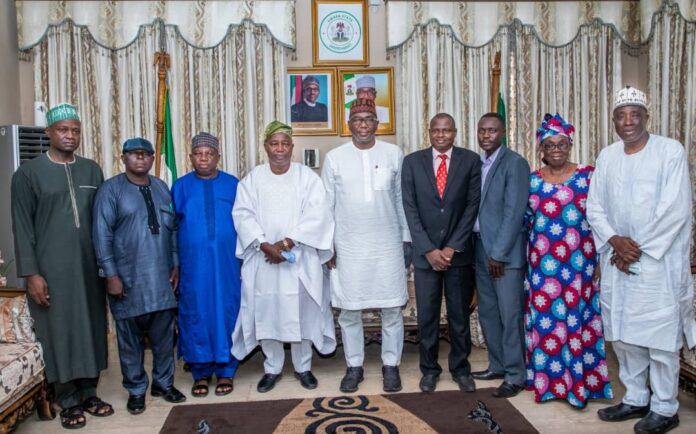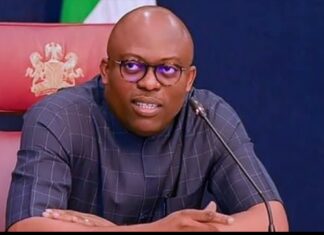Governor AbdulRazaq made the remark while receiving panel report on Oyun School’s Hijab Question
By Emma Ogbuehi
Kwara State Governor AbdulRahman AbdulRazaq on Thursday received the report of the panel of inquiry on the Hijab question at the public funded-Oyun Baptist School, Ijagbo, promising to convoke inter-faith dialogue that will strengthen peace, tolerance and understanding among adherents of different faiths in the state.
“Like you have recommended, we will definitely commence interfaith dialogue while the government looks quickly into the report. From what you have said before we read the report, it is obvious you have done a thorough job,” AbdulRazaq said when he received the panel report from its chairman Dr Shehu Omoniyi Ibrahim at the Presidential Lodge Ilorin.
“We thank you very much. You have done a good work. It’s not an easy job. We do understand the sensitivity of the issues and we ensure to do what is right.”
READ ALSO:
Kwara asks appointees seeking elective office to resign
AbdulRazaq assured the people of the state that the government would soon reopen the school for academic activities under a peaceful atmosphere.
“We have been eagerly awaiting the report. The government is in a hurry to reopen the school but we also want to make sure there’s peace within the community before that is done.”
Ibrahim, for his part, called on the government to institute a periodic interfaith dialogue or bi-annual interfaith convention to promote religious harmony in the state.
“We thank you sincerely for finding us worthy to handle this assignment. We strongly hope that this report will be a roadmap to peaceful coexistence in our public schools, not only on Hijab, but on other conflicting inter-faith matters,” he said, flanked by the co-chairman of the panel and Secretary General of Ijagbo Descendants Progressive Union, Mr. Emmanuel Adebayo Fatola.
He added; “We reviewed several reports of previous committees set up by government on religious matters. We note with regret that the only point that could not be agreed upon is still the hijab issue. We scrutinised many past circulars, from Ministry of Education to the chairman of SUBEB, on Hijab matters. We also noted that the issue of Hijab had been promoted to public discussion since 2007, and yet could not be resolved by previous governments.”
Other members of the panel were Pastor Modupe Agboola; Kwara State Chairperson of the Nigerian Institute of Public Relations, Dr. Saudat AbdulBaki; Special Assistant to the Governor on Religion (Islam) Alhaji Ibrahim Zubair Danmaigoro; Special Assistant to the Governor on Religion (Christianity) Reverend Timothy Akangbe; and a director in the Ministry of Justice, Ishola Olofere (Secretary).
The panel recommended, among other things, a review of the policy on grant-aided schools to clarify grey areas; police investigation into the violence that claimed one life and prosecution of any culprits to avoid a repeat; official action on specific individuals indicted of negligence or collusion in the crisis; (government) payment of hospital bills of those injured; and appeasement of the family that lost their son.
The panel also held that government’s policy allowing any female Muslim child to wear her hijaab in all categories of public schools is in order and should stand except the Supreme Court later holds otherwise. It added that government should restrict religious activities in public schools to those officially conducted by either the Muslim Students Society of Nigeria (MSSN) or Fellowship of Christian Students (FCS), while disallowing clerics or individuals from outside the schools from conducting such activities in public schools, among other recommendations.













